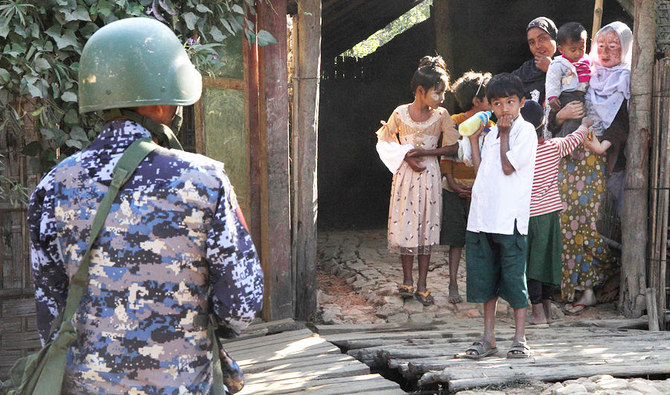DHAKA:
For the past two years, during Ramadan, an overwhelming sadness takes over 15-year-old Ahmed Kamal, a Rohingya refugee at the Cox’s Bazar camp in Bangladesh.
He says it is at this time, specifically during iftar, that he misses his mother, Halima Begum, the most.
Begum was brutally killed in September 2017 by the Myanmar army during a crackdown on thousands of Rohingya — many of whom fled to Bangladesh to escape the persecution.
“My mother used to prepare so many homemade foods during iftar and we all used to enjoy it. But everything is lost now,” Kamal told Arab News.
For many of the Rohingya living at Cox’s Bazar, Ramadan brings with it a sense of nostalgia and memories of days well spent.
“We used to have a get-together with relatives during Ramadan at our home in Mongdu township. All year, I used to wait for this Ramadan get-together with our maternal cousins, grandparents and uncles,” Saleha Khatun, a 13-year-old refugee girl from Kutupalang Rohingya camp, said.
“Some of our relatives were killed in September 2017, a few of them stayed in Rakhine and some fled to Cox’s Bazar. Our greater family is now completely scattered and I miss my relatives a lot in this Ramadan month,” she added.
More than 1.1 million Rohingya are currently lodged at various refugee camps, with nearly 750,000 taking shelter in Bangladesh since August 2017 when the violence escalated in the northern Myanmar province of Rakhine. For most of the Rohingya, this is their second Ramadan in Bangladesh since the great exodus.
BACKGROUND
• World Food Program steps up free food initiative for the displaced this month.
• More than 1.1 million living in world’s largest refugee camp in Bangladesh.
“Last year we didn’t get enough food for iftar to break the fast. Sometimes we had to drink only water but this year there is enough — we have received food from the World Food Program (WFP),” Rashid Khan, a refugee from Balukhali camp, told Arab News.
The WFP also distributed dates to families in refugee camps specifically for Ramadan, which were donated by Qatar.
Gemma Snowdon, the WFP’s communications officer at Cox’s Bazar, told Arab News: “We have scaled up our e-voucher food assistance system in time for Ramadan, which means families have access to a wider range of food. Using an electronic card, families can shop at one of the WFP e-voucher outlets in the camps, and access things such as fresh fruit and vegetables, eggs, dried fish, spices, and the usual staples.”
She added that the program gave the Rohingya a greater range of choice for Ramadan, as opposed to basic rice, lentils and oil they were previously receiving. There are also special offers on food from retailers who operate the WFP e-voucher outlets so people can receive more than they usually do.
“We believe quality food assistance needs to extend beyond just Ramadan, and for us to do this we rely on the generous support provided by donors around the globe,” said Snowdon.

























